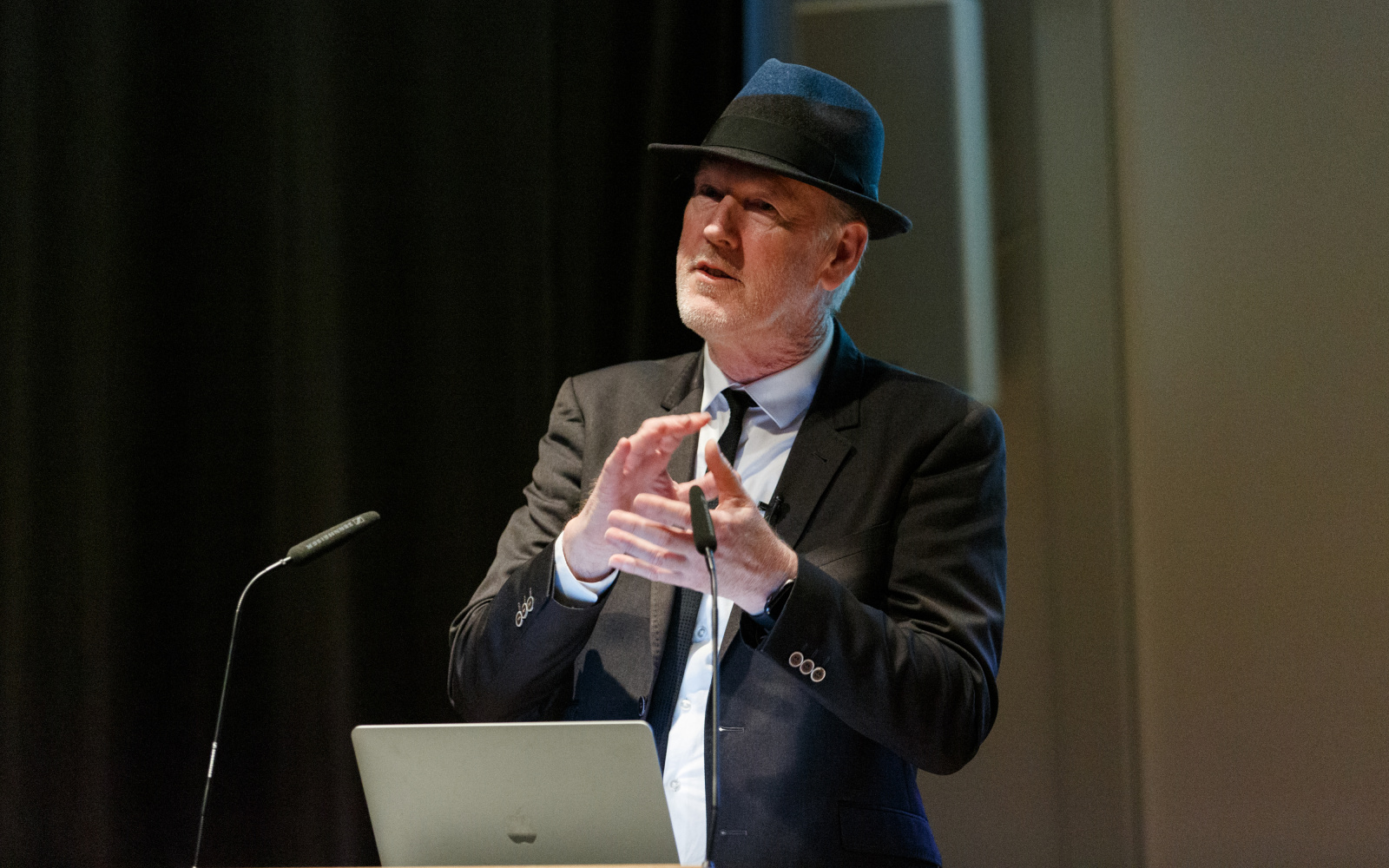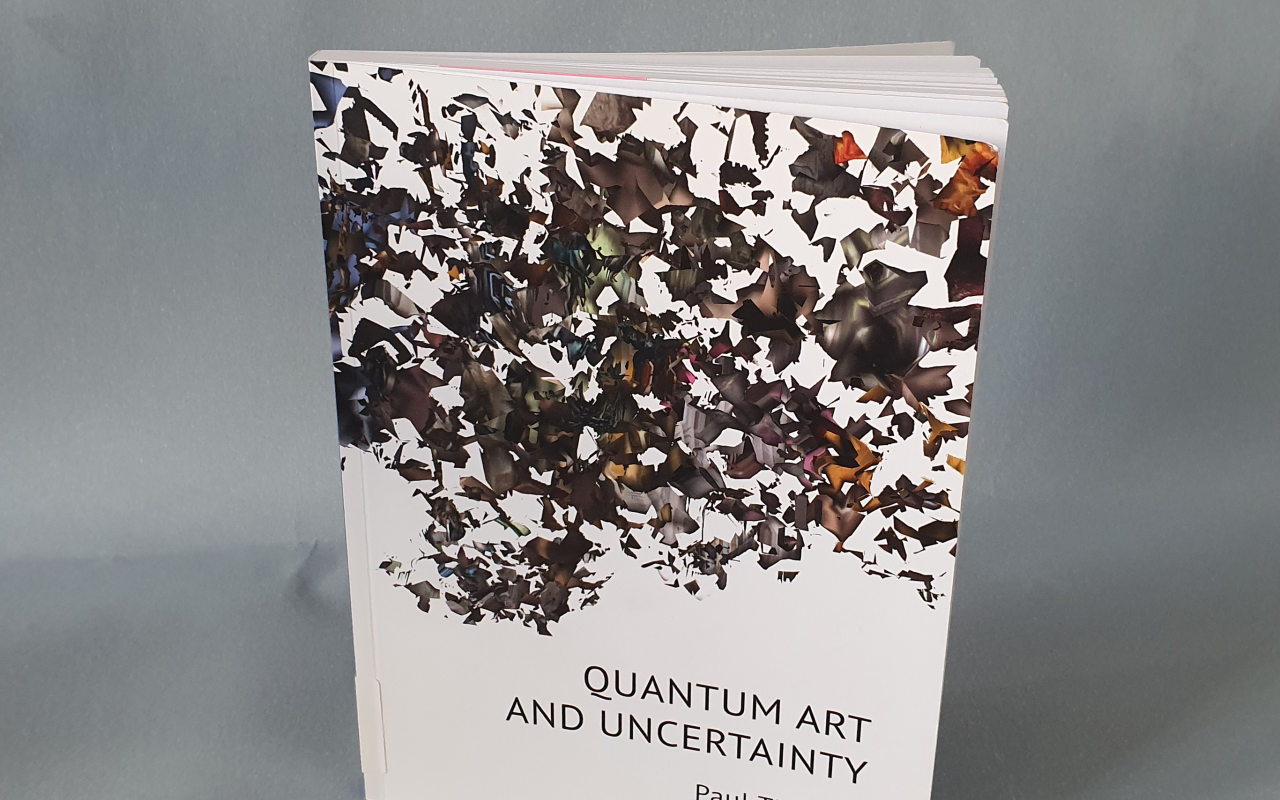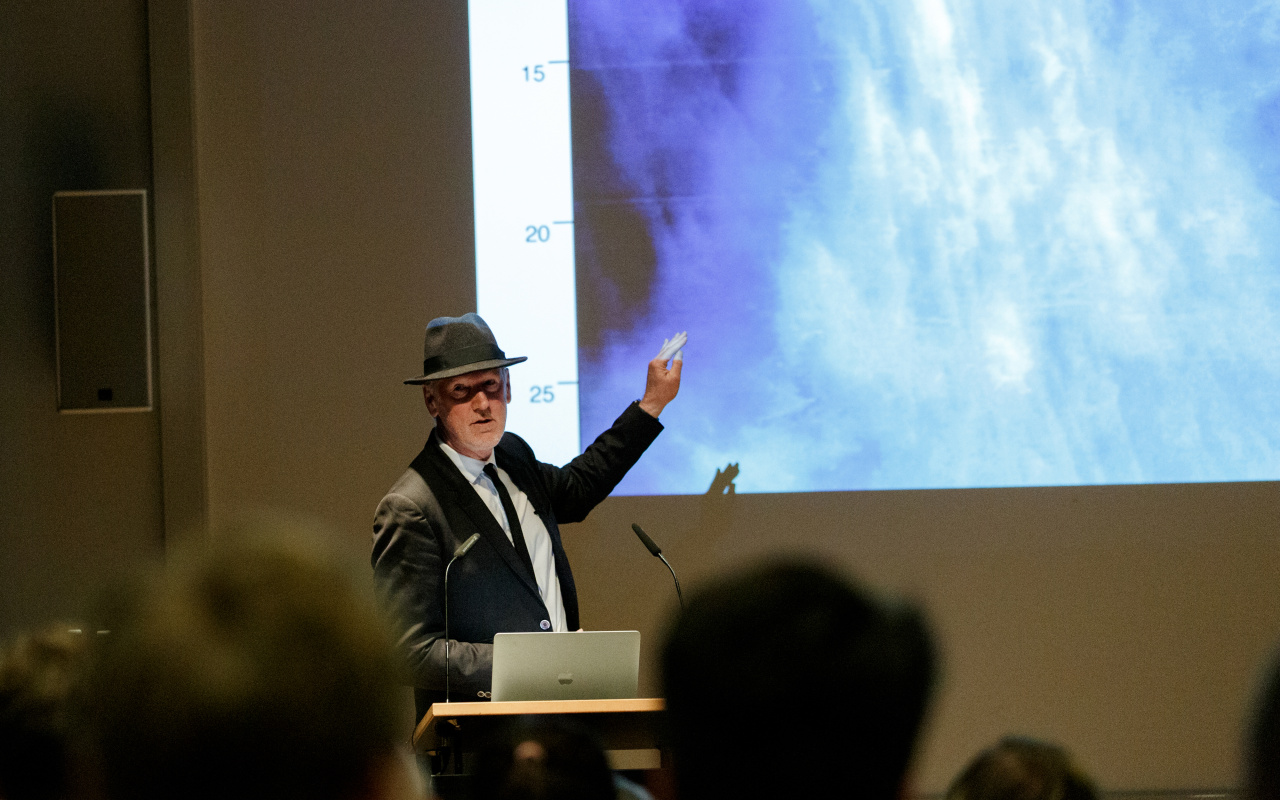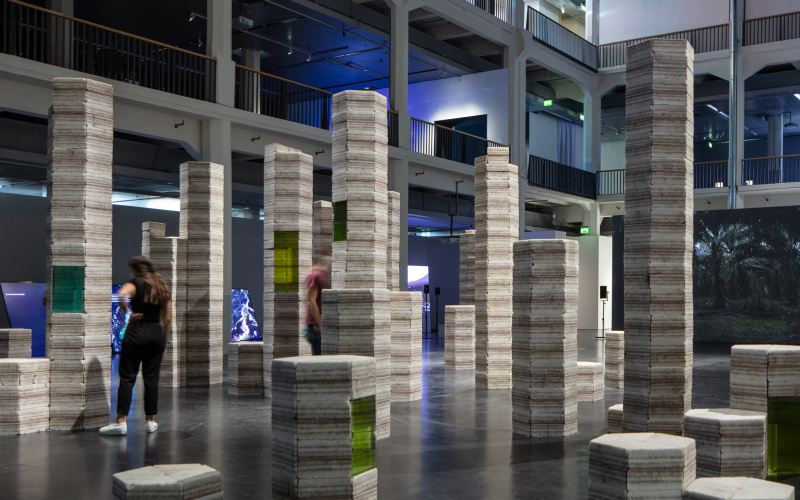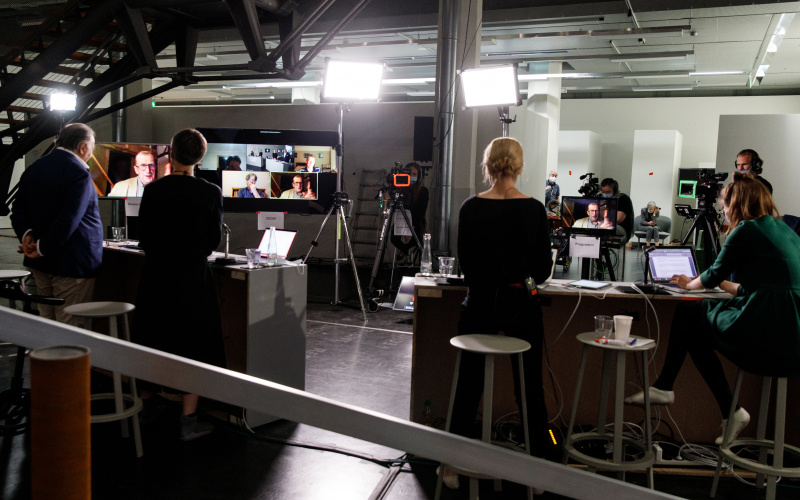Quantum Art and Uncertainty – Lecture and Book Presentation by Paul Thomas
At first glance, quantum physics and the study of atoms do not seem to be a sensual and uplifting experience.
BY HENDRIK HEFT
Paul Thomas, media artist with a chair at the University of Sydney, sees things differently. With the presentation of his new book »Quantum Art and Uncertainty« in the lecture hall of the Center for Art and Media (ZKM), he aesthetically demonstrated the invisible world of molecules to his audience.
»All we know for sure is that both art and science carry probability and uncertainty at their core.« (Quantum Art and Uncertainty, 2018, p.7)
About the book »Quantum Art and Uncertainty« by Paul Thomas
In his book »Quantum Art and Uncertainty«, Paul Thomas uses several examples from quantum theory and art to illustrate a common ground between art and science – the aspect of uncertainty.
Excerpts from the Introduction
»This book does not want to be a historical source of quantum theory, uncertainty and art, but a source of the many ideas in this field and how they can be related to the visual arts. [...] The book will explore concepts of art and physics and their contributions to our worldview. [...] Key themes in this book are: wave-particle duality, superposition, quantum entanglement, atom spin, material agency, and the ontology of uncertainty.« (Quantum Art and Uncertainty, 2018, p.3–p.5)
A note on Paul Thomas's lecture »Quantum Art and Uncertainty«
Right at the beginning, the tall, slim man relativized his own research as an attempt to understand the quantum world: »I am an artist and have no scientific background«, he restricted. His goal is to create images using data and algorithms. Although technical aids such as nanocomputers are needed to measure and describe electrons and radio waves, he ultimately works with the »tools of nature«.
The use of these »natural tools« sparked an almost religious emotion in him during the lecture. Thomas described the creation of sounds by a gramophone needle, moving in the furrows of a record, or the confusion of sand by human breath as elementary processes. He made the latter visible through a short film, speaking of the »breath of God«, which is inherent in every movement. He used graphics to illustrate the principle of cause and effect at the level of the smallest particles arranged in a chain. Then, he posed the question of what happens to an electron when its neighbor becomes unbalanced. Some short films demonstrated the regularity of the movements of radio and sound waves, which can be transmitted to different frequencies. A brief confusion prevailed in the hall when Paul Thomas let his own voice emanate from a speaker.
Finally, he took a look into the past, pointing out that the invisible mechanisms of nature had always inspired artists, even if the possibilities for researching them were not available yet.
Peter Weibel, artistic-scientific director of the ZKM, described his colleague's approach as an »object-oriented ontology«, for it is ultimately a question of what lies behind terms such as »life« or »quantum chaos«. Thus, Paul Thomas was acting in the »threshold space between reality and the virtual world«, an interdisciplinary approach advocated by Peter Weibel.
The relevance of the short contributions, concluded by a camera ride through the grey thicket of a woolen fabric, was revealed, once the shown materials and their properties were explained. The interplay between form, color, sound and movement seemed a bit bumpy. Nevertheless, the lecture helped to expand our view of the present by collecting, evaluating and presenting information faster and more comprehensively than ever before thanks to new technologies.
Article by Hendrik Heft
Paul Thomas is a Professor of Fine Art at UNSW Art and Design. He is the Director of the »Studio for Transdisciplinary Art Research (STAR)« and the instigator of the »Transdisciplinary Imaging« Conference Series 2010–2018. In 2000 he instigated and was the founding Director of the Biennale of Electronic Arts Perth 2002, 2004 and 2007. As an artist Thomas is a pioneer of transdisciplinary art practice.
News Type
News Category
- tracks & records
